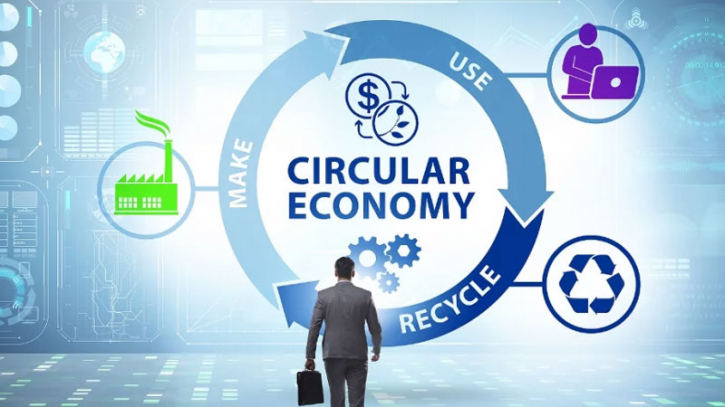In pursuit of a developed and prosperous Bangladesh

The election result showed that the people of Bangladesh have kept a substantial amount of trust in the government for their performance in the last 15 years. The government has attained its goal of establishing a digital Bangladesh over the last three terms. Now the government should aspire to attain a more ambitious goal of transforming the country into a prosperous and developed Bangladesh. They should aim to move forward towards a future marked by accountability, transparency, efficient administration, reduced corruption and a commitment to secular values.
Policies of strong governance
The widespread prevalence of corruption has impeded progress and the growth of the nation. The government must prioritize the identification of effective policies aimed at mitigating corruption across all echelons. Since corruption is strongly related to the strengthening of governance and good governance, the government should emphasize ensuring accountability and transparency in administration to stop corrupt practices. In attaining this goal, the anti-corruption commission should be given more power and authority to take strong action against those persons engaged in illegal practices irrespective of their social standing or political affiliation.
A government structure with efficiency and accountability ensures the effective implementation of the policies and creates an environment that favours economic development. Therefore, the government must prioritize enhancing the capabilities of institutions to effectively fulfill their duties. Simultaneously, the government should encourage individuals to voice their opinions and undertake proactive measures to develop a system of governance that upholds the principles of law and protects the rights of its residents.
It is essential to guarantee the long-term sustainability of the development endeavours. The implementation of policies that expedite the advancement of sustainable economic development must be prioritized. As part of the overarching policies, it is important to establish a business climate that is conducive to investment, particularly focusing on promoting the growth of small and medium-sized firms (SMEs). This should involve focusing on sectors that create jobs and enhance productivity. A strong economy could help overcome global economic instability and ensure long-term development.
Education and vocational training
The significance of education in nation-building is undeniable. An educated population is a valuable resource for any country since it possesses the capacity to actively contribute to the country's progress and advancement. Therefore, the government should contemplate augmenting the allocation in this sector to guarantee that every citizen can access education, regardless of their social standing. Only a qualified workforce can contribute to the development of technology, promotion of innovation and the overall country's growth.
There is a need to pay importance to extending the scope of vocational education along with the traditional education system. Vocational education could provide requisite skills to the workforce making them capable of coping with the demands of the labour market. A strong vocational education system could provide students with the necessary practical skills, specialized technical knowledge and industry-specific expertise that they can use to solve real-world problems.
Providing top-priority vocational education will not only provide us with the leverage to address the growing needs of the job market, but also help the pursuit of many jobs, dealing with the issue of unemployment. The practical skills will help increase employability and contribute to economic growth and prosperity. It will also establish a link between industry and educational institutions which is an urgent necessity. Prioritizing vocational education will foster an atmosphere where students can learn the essential skills needed to adapt to a technologically advanced society.
Co-existence
The social fabric of a country also significantly contributes to its total growth. All of us must adhere to the idea of secularism, which serves as a basic cornerstone of our constitution. Historically, Bangladesh has been recognized as a nation that upholds tolerance and ensures the peaceful co-existence of individuals from many religious backgrounds. However, certain groups often try to divide the people and destabilize the country. Thus, the government should take action to establish an inclusive society that will uphold secularism and respect the rights and beliefs of other groups.
Keeping the world and the future in mind
Along with internal challenges, the government must face the challenges triggered by the global economic crisis and climate change. Given the significance of these matters, the government must create and execute policies that would assist in mitigating the detrimental impacts. Simultaneously, it is imperative to invest additional resources towards guaranteeing sustainable growth, promoting renewable energy, and preserving the environment to provide a prosperous life for future generations.
We need to outscore the achievements of the past to attain the goal of establishing a developed and prosperous Bangladesh. The government has already attained tremendous development, but they must pay more attention to extending the scope of vocational education, reducing corruption, improving governance, and allocating economic development to ensure its sustainability. The people of Bangladesh have kept their confidence in the government for the last 15 years. If the government can materialize these objectives, they will undoubtedly receive more support from the citizens.
Dr Pranab Kumar Panday is a Professor in the Department of Public Administration at the University of Rajshahi.
Source: Dhaka Tribune
.png)




